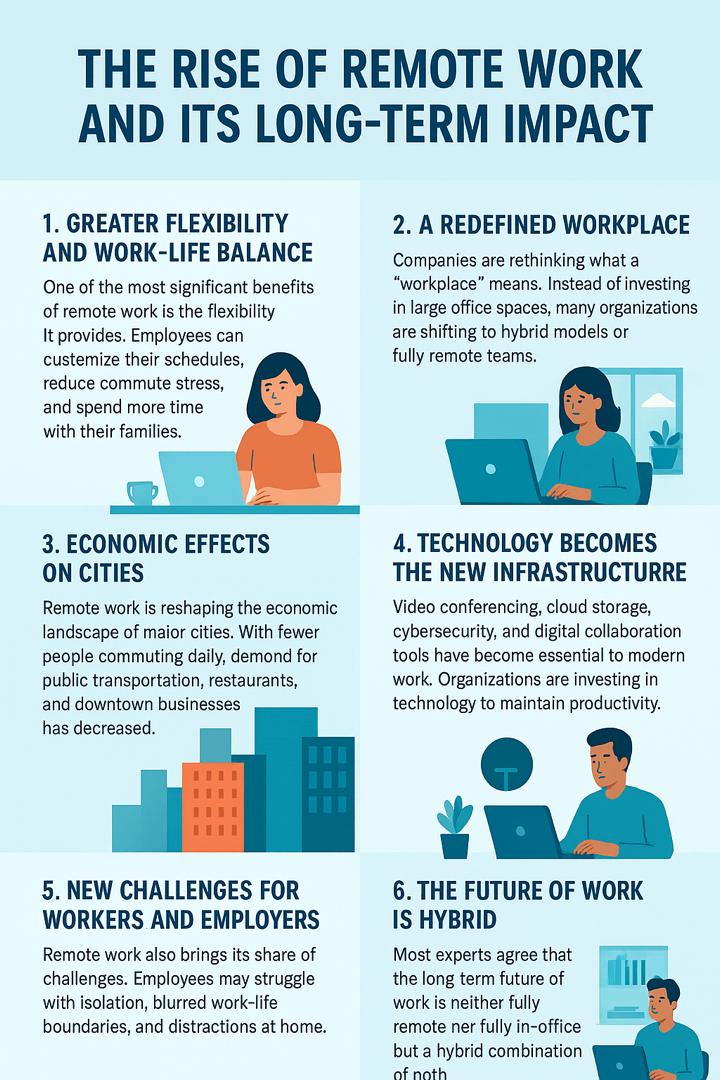
1. Greater Flexibility and Work–Life Balance
One of the most significant benefits of remote work is the flexibility it provides. Employees can customize their schedules, reduce commute stress, and spend more time with their families. This flexibility often leads to higher job satisfaction and improved mental well-being. For many professionals, the ability to work from anywhere has become a top priority when choosing an employer.
2. A Redefined Workplace
Companies are rethinking what a “workplace” means. Instead of investing in large office spaces, many organizations are shifting to hybrid models or fully remote teams. This change reduces overhead costs and allows firms to recruit top talent from anywhere in the world. As a result, businesses gain access to a wider, more diverse talent pool.
3. Economic Effects on Cities
Remote work is reshaping the economic landscape of major cities. With fewer people commuting daily, demand for public transportation, restaurants, and downtown businesses has decreased. Some workers are leaving expensive urban centers for more affordable suburban or rural areas. While this shift can create challenges for city economies, it also opens opportunities for growth in smaller communities.
4. Technology Becomes the New Infrastructure
Video conferencing, cloud storage, cybersecurity, and digital collaboration tools have become essential to modern work. Organizations are increasingly investing in technology to maintain productivity and communication across distributed teams. This shift has driven rapid innovation in the tech sector, leading to more advanced tools that support remote workflows.
5. New Challenges for Workers and Employers
Remote work also brings its share of challenges. Employees may struggle with isolation, blurred work–life boundaries, and distractions at home. Employers must learn to manage remote teams effectively, measure productivity, and maintain company culture. Cybersecurity has become a major concern, as distributed networks increase the risk of breaches.
6. The Future of Work Is Hybrid
Most experts agree that the long-term future of work is neither fully remote nor fully in-office but a hybrid combination of both. This approach allows organizations to enjoy the benefits of remote work while still maintaining collaboration and connection through in-person interactions.